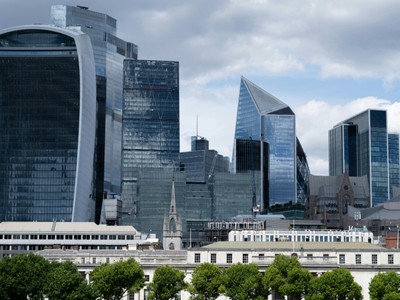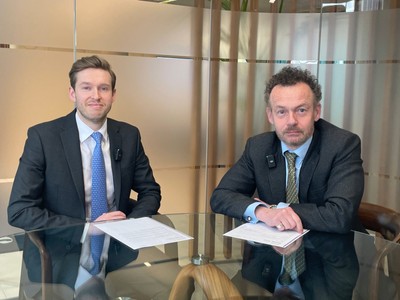Figure 1: Source: FactSet
That’s also why the stock markets crashed down 10% or so during October; lower growth prospects means lower revenues which means lower cashflows and less value in the future. My estimates are that a change of growth of 1% per annum should shave 10% off the stock market at the current levels of gearing in the FTSE350.
The reasons were manifold but in short, it was a cascade of unhelpful and unencouraging data. At the end of September we had commentators being worried about our weak 0.5% UK wage inflation. If you expect things to pick up then the low rate of unemployment (6%) should force employers to bid up wages in order to get the staff that they need. That in turn should drive them to invest in capex to automate processes rather than hire new employees.
We then had slow housing growth in the US and low inflation numbers in Euroland with France again being criticised for its budget deficit.
As the month progressed, Draghi’s indications regarding potential quantitative easing (QE) from the European Central Bank (ECB) were interpreted with a lower likelihood of this happening. German manufacturing slowed to a point where it looked as if the Eurozone might be heading for a recession - Germany had been seen as the powerhouse for Europe!
Weak mortgage growth in the UK and indications that Lon don property might be tailing off did not help.
The ugly head of Ebola reared up with two nurses contracting the disease from their infected patient in Dallas. It did slightly make you wonder what was happening, if a country with some of the world’s greatest health care standards in an unstressed environment failed to prevent the spread of the virus, what would happen in the less sterile and less protected cities outside the US? And if their health care infrastructure was stressed with overload, how would they cope?
The mood turned a couple of the US Fed’s Board members more dovish and that started to put a floor under the market. What we need now is more strength from the US and the UK, and a sense that Ebola is controllable in the US should help, as will the emergence of wage inflation in the private sector.
But I suspect that two big European issues need to get sorted out first, which, once sorted, will perhaps allow confidence to return to the business sector and allow long term investment in capex, so driving the capacity and productivity gains that we need to drive real wage inflation.
The first thing to sort out is QE. All the other major nations have done QE. The US, UK and Japan have all QE-ed their economies; in simple terms, it is now Euroland’s turn.
We were told that Draghi has bought €1.7 billion of covered bonds, i.e. those with hard assets as collateral behind the bonds. If he tries to get €1 trillion away in this market he might struggle. Apparently the market size is €500 billion with annual issuance running at €50 billion. We need to see the scope of the ECB’s bond buying expanded, probably to sovereign debt in the secondary market. But none of that will really kick off until the European Court review of ECB’s open market actions, as reported on 14th October, decides whether this activity breaches European treaties, as alleged by some Germans.
The second issue that needs to be sorted out is the intransigence of the Germany vs. France/Italy (“Frataly”) stand off. The Germans are telling the Fratalians to reform their socialist labour market policies which have the effect of discouraging investment and employment. And the Fratalians are telling the Germans to provide stimulus to Euroland with infrastructure projects financed from their budget surplus.
This is a game of chicken to see who blinks first. It might last until April 2017 which is when the French probably elect somebody other than Hollande. Until then I expect things to be boring and the lack of progress to weigh on investors’ minds and confidence.



